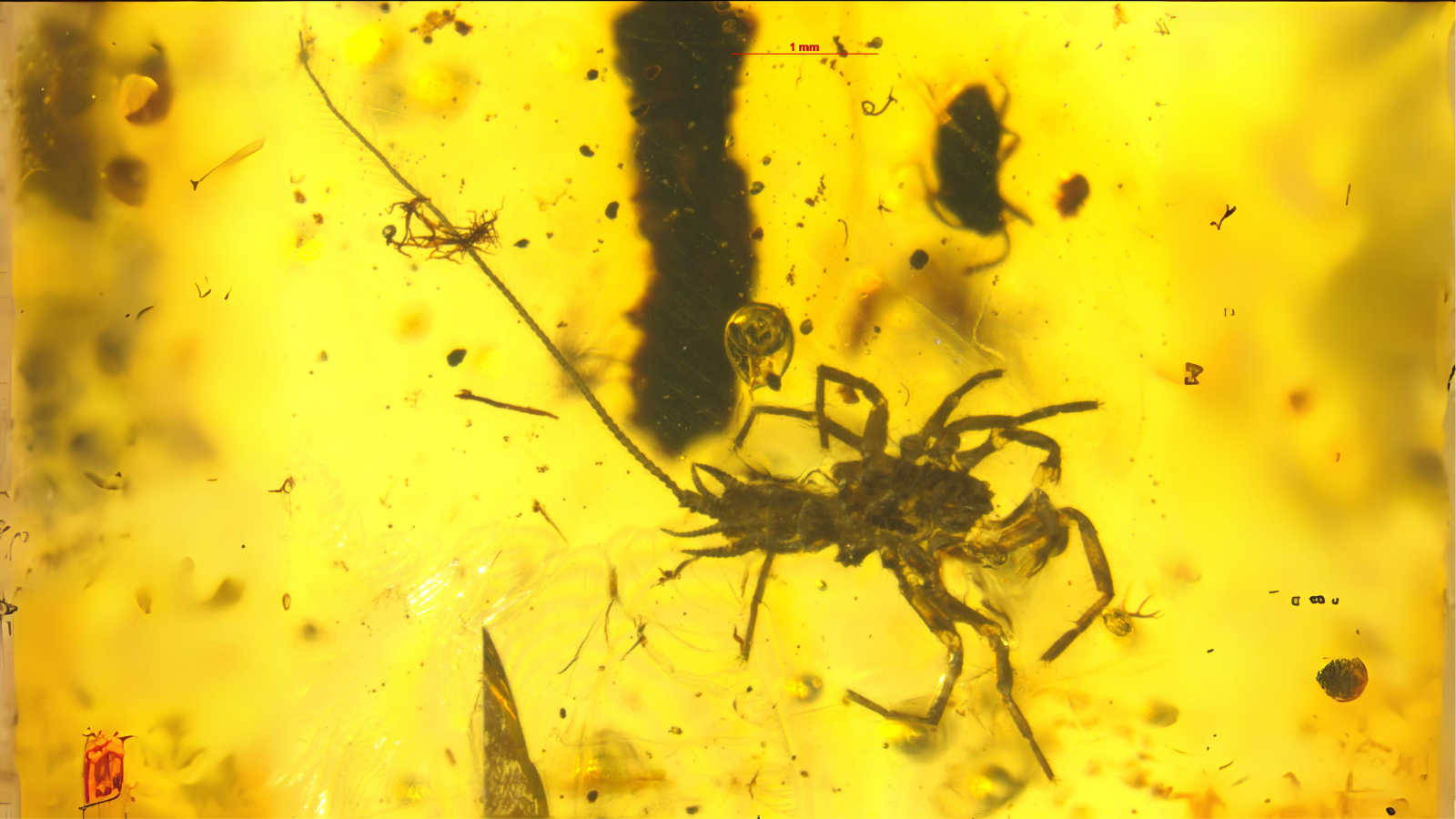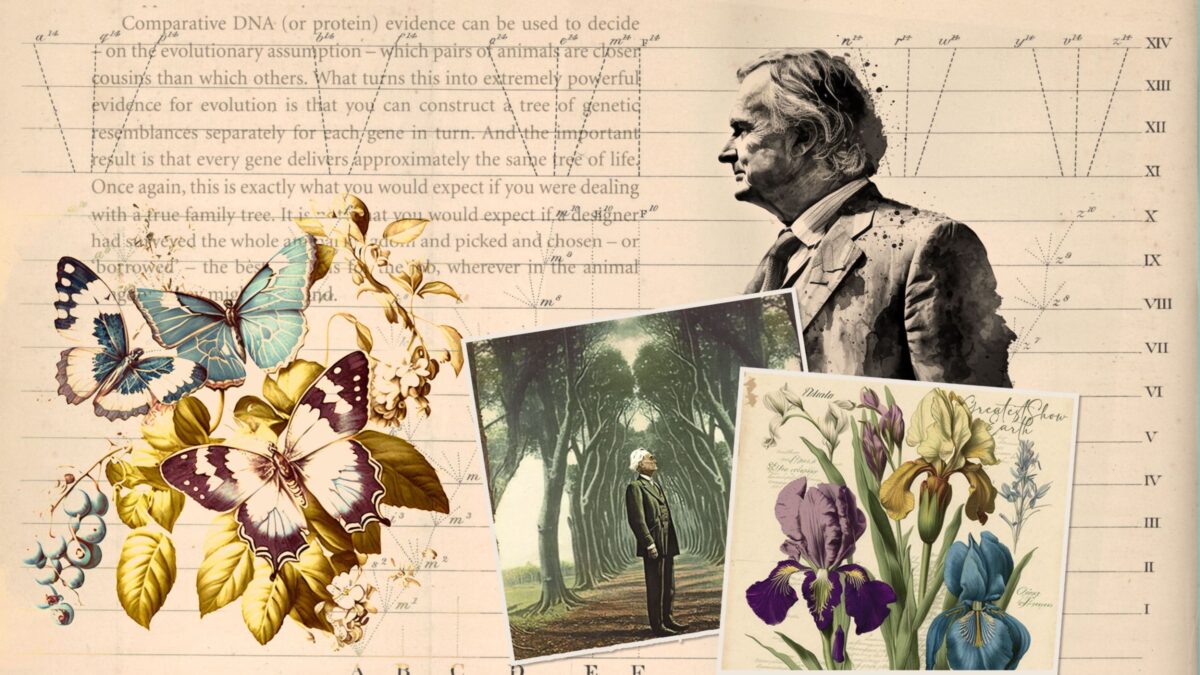


How Modern Science Strengthens the Claims of Theism

The Pentadactyl Whale Flipper: An Engineering Masterstroke

The Dawkins Test Returns an Answer: Intelligent Design
In 2009 atheist biologist Richard Dawkins offered a scientific test to decide between Darwinian evolution and intelligent design (ID). The results are in, and as guest Casey Luskin explains on this ID the Future, the evidence has broken strongly in favor of intelligent design. At the time Dawkins presented the test, he was confident that comparative DNA evidence supported Darwin’s tree of life and its idea of universal common ancestry. He made the point in his 2009 book The Greatest Show on Earth and in two interviews. As he put it, “The single most convincing fact or observation you could point to” in favor of Darwinian evolution over against ID “would be the pattern of resemblances that you see when you compare the genes … of any pair of animals you like … and then plot out the resemblances and they form a perfect hierarchy, a perfect family tree. And the only alternative to it being a family tree is that the intelligent designer deliberately set out to deceive us in the most underhanded and devious manner.” But fourteen years later the picture looks very different. Tune in as Casey Luskin details the various ways that the rapidly developing field of phylogenomics is uncovering data that powerfully fits the ID model of life’s history and strongly undermines the idea of universal common ancestry via mindless evolution. As Luskin says in a recent Evolution News article, “Now, years later, scientists have sequenced a great number of whole genomes. And as a consequence, they know that Dawkins was wrong. Every gene does not deliver ‘approximately the same tree of life.’… On its own terms, the Dawkins test for evolution has come up for ID.” So why haven’t evolutionary biologists given up on universal common ancestry? Luskin says that some have, while others reflexively invoke auxiliary hypotheses and employ question-begging computer models to generate tree-like ancestries in the face of contrary data. Luskin compares the behavior to astronomers who protected the dying geocentric model of the solar system by invoking “epicycles” to explain away contrary astronomical data. Better to let the Dawkins Test speak for itself, Luskin says. Listen in for the full story.

God’s Grandeur: Ann Gauger on the Scientific Case for Design

Behe and Ramage: Evolution’s Limits and the Fingerprints of Design
Today’s ID the Future wraps up a debate over evolution and intelligent design between Lehigh University biologist Michael Behe and Benedictine College theologian Michael Ramage. Both Behe and Ramage are Catholic, and they carry on their conversation in the context of Catholic thinking about nature and creation, in particular the work of Thomas Aquinas and contemporary Thomist philosophers. Ramage seeks to integrate his Thomistic/personalist framework with modern evolutionary theory’s commitment to macroevolution and common descent. Behe doesn’t discount the possibility of common descent but lays out a case that any evolution beyond the level of genus (for instance, the separate families containing cats and dogs) cannot be achieved through mindless Darwinian mechanisms and, instead, would require the contributions of a designing intelligence. Behe then summarizes both the negative evidence against the Darwinian mechanism of change and the positive evidence in nature for intelligent design. This debate was hosted by Pat Flynn on his Philosophy for the People podcast, and is reposted here by his permission.

How Universal Common Descent Survives Failed Predictions
On today’s ID the Future, philosopher of biology Paul Nelson discusses his chapter in a recent Harvest House anthology edited by host Casey Luskin, The Comprehensive Guide to Science and Faith. Nelson says the theory of universal common descent, a key component of modern evolutionary theory, has generated multiple predictions that have failed. The prediction he discusses here is that there would turn out to be a single universal genetic code, since that’s what we should expect if all life on earth is descended from the last universal common ancestor (LUCA). Findings over the past three decades have proven that prediction spectacularly wrong. How does the theory of universal common descent shrug off this contrary empirical finding? The trick for LUCA in this and similar cases is to shift blame for failure to an ancillary theory. It’s a clever move, says Nelson, but it comes at a cost.

Casey Luskin: Biogeography Is No Friend of Common Descent
On this ID the Future, geologist Casey Luskin discusses biogeography and the problems it poses for the idea of universal common descent. To make it work, evolutionists have to propose, for instance, that old world monkeys rafted across the Atlantic from Africa to South America on a natural raft. Really? That’s some raft. And how did the monkeys not starve to death? Or die of thirst? They couldn’t drink salty ocean water, after all. And talk about a genetic bottleneck! That’s just one of several problems Luskin raises with the idea that all species gradually evolved from a universal common ancestor. In his conversation with host Emily Reeves, he also touches on the problem of convergence, as when two creatures that are, at best, only very distantly related, nevertheless share a major common feature, such as humans and octopuses both having camera eyes. But evolutionists acknowledge that the putative common ancestor of humans and octopuses didn’t even have eyes, meaning the evolutionists must hold to the view that this very specific marvel of optical engineering just happened to evolve twice. Luskin notes that this example of convergence is just one of countless such instances. In each case, evolutionists find ways to explain the problem away, but Luskin compares these ad hoc patches to the epicycles that Renaissance-era proponents of an Earth-centered model of the solar system kept introducing to explain away the growing body of astronomical evidence that ran contrary to their geocentric theory. When your theory gets messier and messier to account for new data, Luskin argues, maybe it’s time to step back from the theory and consider other possibilities. The alternative he favors: common design. The occasion for this conversation is Luskin’s chapter on biogeography and evolution in the recent anthology from Harvest House Publishers, The Comprehensive Guide to Science and Faith: Exploring the Ultimate Questions about Life and the Cosmos.

Is Darwinism a Theory in Crisis?
Today’s ID the Future spotlights The Comprehensive Guide to Science and Faith, and specifically, an essay in the new anthology by biologist Jonathan Wells, “Is Darwinism a Theory in Crisis?” As Wells and host Casey Luskin note, the essay title alludes to philosopher of science Thomas Kuhn’s influential 1962 book The Structure of Scientific Revolutions. Kuhn argued there that if one studies the history of scientific revolutions, one finds that when the scientific evidence has begun to turn against a dominant scientific paradigm—when its days are numbered— its adherents do not simply concede defeat. Instead they use all their institutional power to suppress dissent and punish proponents of any competing paradigm. This is the period of crisis, which can last for years and even decades. Wells contends that modern evolutionary theory is a current instance of a dominant paradigm in crisis. He briefly makes the case in this episode, and at greater length in his essay, which appears in the newly released anthology from Harvest House Publishers, edited by William Dembski, Casey Luskin, and Joseph Holden. Find it at Amazon, Barnes & Noble, and other booksellers.

Jonathan Wells and The Comprehensive Guide to Science and Faith, Pt. 1
Today’s ID the Future spotlights a new book, The Comprehensive Guide to Science and Faith: Exploring the Ultimate Questions about Life and the Cosmos, and specifically a chapter by biologist Jonathan Wells titled “What are the Top Scientific Problems with Evolution?” Wells is the guest, and the host is geologist and Center for Science and Culture associate director Casey Luskin, who co-edited the anthology from Harvest House Publishers. In this episode the first problem that Wells highlights concerns homology and convergence. A second problem involves fossils. Darwin anticipated “innumerable transitions” in the fossil record, but such a rainbow of transitional forms has never been found. Not even close. Another problem, molecular phylogenies. Another: the lack of observational evidence that natural selection can help to accumulate many small changes into major new innovations. What about the power of random mutations, with or without natural selection? Wells says that this, too, is a problem for modern evolutionary theory, and he provides laboratory evidence to support his claim. Another problem: evidence pouring in from what are known as molecular phylogenies. As Luskin notes, there is much more in the essay, and it’s only one of many essays in the new anthology, with contributions from many of the leading lights of the intelligent design movement. Each essay is written in a concise and accessible form. Find the new book at Amazon and other online booksellers.